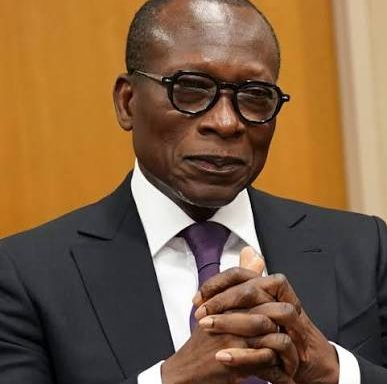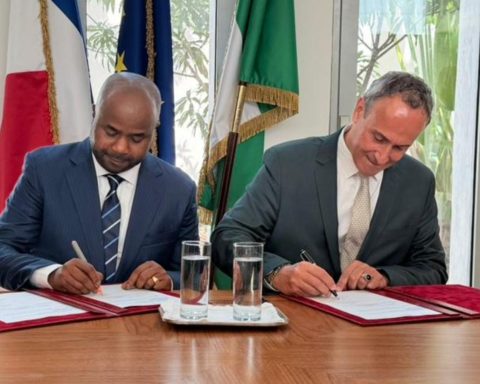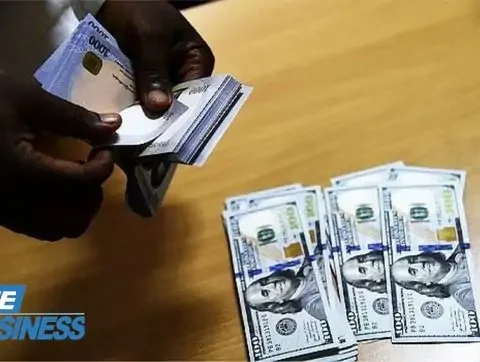Nigeria’s economy grew by 3.13 per cent year-on-year (YoY) in real terms in the first quarter (Q1) of 2025.
This is according to data released by the National Bureau of Statistics (NBS) on Monday, 21 July 2025.
Join our WhatsApp ChannelThis growth reflects a rebasing of the Gross Domestic Product (GDP) to align with the current economic landscape, using 2019 as the new base year, thereby replacing the previous 2010 base year.
Statistician-General for the Federation, Prince Adeyemi Adeniran, who presented the key findings on Monday, said that the rebasing exercise covered the period between 2019 and 2023.
He explained that the rebased estimates using the new base year of 2019 show that Nigeria’s nominal GDP is much larger than previously estimated.
According to him, in 2019, the rebased nominal GDP at market prices stood at N205.09 trillion, and grew to ₦213.64 trillion in 2020, ₦243.30 trillion in 2021, ₦274.23 trillion in 2022, ₦314.02 trillion in 2023 and ₦372.82 trillion in 2024.
“Gross Domestic Product (GDP) grew by 3.13 per cent (year-on-year) in real terms in the first quarter of 2025. This growth rate is higher than the 2.27 per cent recorded in the first quarter of 2024,” the NBS Boss stated.
He revealed that the performance of the GDP in the Q1 2025 was driven mainly by the Services sector, which recorded a growth of 4.33 per cent and contributed 57.50 per cent to the aggregate GDP.
READ ALSO: Top 10 African Countries With Highest GDP Growth Rate
He further stated that the industry sector rose by 3.42 per cent YoY, from 2.35 per cent recorded in the first quarter of 2024, while the agriculture sector grew by 0.07 per cent, from -1.79 per cent recorded in the first quarter of 2024.
The NBS said Nigeria’s GDP in the Q1 2025 at basic price stood at ₦94.05 trillion in nominal terms. This is 18.30 percent higher than ₦79.50 trillion aggregate GDP recorded in Q1 2024.
“In terms of share of the GDP, the services and industry sectors contributed more to the aggregate GDP in the first quarter of 2025 compared to the corresponding quarter of 2024,” Adeniran stated.
“In the quarter under review, aggregate GDP at basic price stood at ₦94. 05 trillion in nominal terms. This performance is higher when compared to the first quarter of 2024, which recorded an aggregate GDP of ₦79.50 trillion, indicating a year-on-year nominal growth of 18.30 per cent.”
He added that based on GDP estimates for the 2019 base year, real estate ranked third, pushing crude oil and natural gas to fifth place. He attributed the development to better coverage of the real estate informal sector.
Sectoral Contributions
Services Sector: dominated growth at 4.33 per cent, contributing 57.15 per cent to GDP.
Industry Sector: expanded by 3.42 per cent (up from 2.35 per cent in Q1 2024).
Agriculture Sector: recorded marginal recovery at 0.07 per cent (from -1.79 in Q1 2024).
Non-Oil Sector: Accounted for 96.03 per cent of GDP, while the oil sector contributed 3.97 per cent
Top-performing sectors
The NBS boss said the top five performing sectors in the quarter under review included crop production (17.58 per cent), trade (17.42 per cent), real estate (10.78 per cent), telecommunications (6.78 per cent) and crude production and natural gas (8.6 per cent).
Rebasing Impact
According to the report, Nigeria’s nominal GDP for 2019 was revised to ₦205 trillion (from ₦80 trillion), reflecting a 41.7 per cent increase from the 2014 rebasing exercise.
The rebasing aimed to capture emerging sectors like e-commerce, tourism, and marine activities, previously underrepresented.
Economic Size and Ranking
According to the report, Nigeria’s economy reached ₦372.82 trillion ($243.7 billion) in 2024 after the rebasing exercise. It, however, remains Africa’s fourth-largest, coming behind South Africa ($410.34 billion), Egypt ($347.34 billion), and Algeria ($268.89 billion).
Despite reforms such as foreign exchange reforms, subsidy removal, Nigeria faces a cost-of-living crisis and slower-than-expected growth under President Tinubu’s administration.
Victor Ezeja is a passionate journalist with seven years of experience writing on economy, politics and energy. He holds a Master's degree in Mass Communication.











